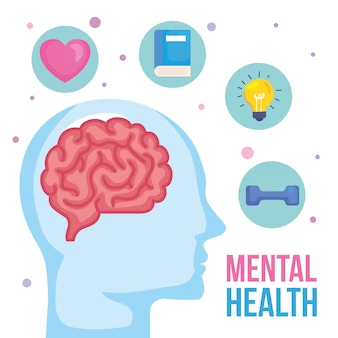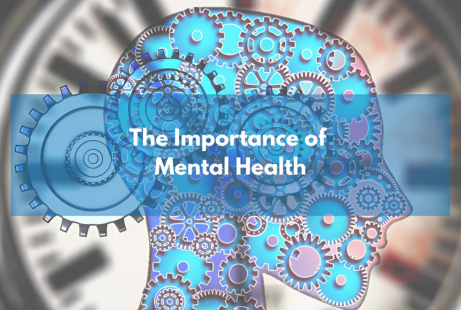Mental health means feeling good in your mind and handling life’s challenges. It helps us use our abilities, learn, work, and participate in our community. It’s a key part of our overall health and helps us make decisions, build relationships, and shape our world. Everyone has the right to mental health, and it’s important for personal growth, community well-being, and economic progress. Mental health is not just about not having mental disorders. It’s a range of experiences that vary from person to person. Some people might have mild issues, while others might face more severe challenges. Mental health conditions include disorders, disabilities, and other states that cause significant distress or problems in daily life. People with these conditions might have lower mental well-being, but this isn’t always the case.
Why is mental health important?
Mental health is important because it helps you:
Deal with life’s ups and downs
Stay physically well
Keep good relationships
Play a part in your community
Perform well at work
Reach your goals
Having good mental health is crucial because it also impacts your body. For example, mental health issues can raise your chances of health problems such as stroke, type 2 diabetes, and heart disease.

Supporting Mental Health Recovery: Our Healthcare Products
1. Respiratory and Sleep Therapy Products:
CPAP/BiPAP Masks: Improve sleep quality by reducing sleep apnea, and enhancing overall mental wellbeing.
Oxygen Therapy Devices: Support respiratory function, crucial for brain health and mental wellness.
2. Diagnostic and Supplies:
Sleep Monitors: Aid in diagnosing and managing sleep disorders, contributing to improved mental health.
3. Mind Calm Therapy Lamp:
Designed to improve mood and energy levels through light therapy.
4. Serene Sound White Noise Machine:
Helps reduce anxiety and promote restful sleep.
5. Calm Pulse Biofeedback Device:
Assists in managing stress and enhancing relaxation through biofeedback techniques.
Factors Affecting Mental Health
1. Biological Factors
Genetics: Influence susceptibility to mental health conditions inherited from family members.
Brain Chemistry: Imbalances in neurotransmitters can impact mood, cognition, and behaviour.
2. Environmental Factors
Stress: Chronic stressors can lead to anxiety, depression, and other mental health issues.
Trauma: Past traumatic experiences can contribute to PTSD and other disorders.
3. Lifestyle Factors
Diet: Nutritional deficiencies or imbalances can affect brain function and mood regulation.
Exercise: Physical activity promotes the release of endorphins, improving mood and reducing stress.
Common Mental Health Conditions
Anxiety disorders: Include conditions like generalized anxiety disorder and panic disorder, characterized by excessive worry and fear.
Depression: Involves persistent sadness, loss of interest in activities, and changes in mood and behaviour.
Bipolar disorder: Results in extreme mood swings, ranging from emotional highs (mania or hypomania) to lows (depression).
Schizophrenia: A severe mental disorder affecting thoughts, perceptions, and behaviours, often involving hallucinations and delusions.
Obsessive-compulsive disorder (OCD): Features recurring, unwanted thoughts (obsessions) and repetitive behaviours (compulsions).
Signs and Symptoms of Poor Mental Health
1 . Emotional Signs: Mood swings and excessive worry are common indicators of emotional distress.
2. Behavioral Signs: Social withdrawal and changes in sleep patterns can signal underlying mental health issues.
3. Physical Signs: Headaches and digestive issues may manifest as physical symptoms of poor mental well-being. These signs collectively highlight the complex interplay between the emotional, behavioural, and physical aspects of mental health.
Mental health is really important for how we feel and live our lives. It helps us deal with problems, stay healthy, have good relationships, and do well in our communities. Mental disorders can make life hard, but they can be treated. We can prevent problems by looking at things like how we act, our families, and where we live. Getting help from our community and support services is key. Lots of things, like how we are raised and what happens around us, affect our mental health. So, it’s important to look at everything when we want to help people feel better.
ROYAL MEDICAL & EQUIPMENT TRADING is committed to supporting mental health through our range of medical equipment and services. Based in Dubai, we provide quality healthcare solutions to help individuals and communities thrive.
